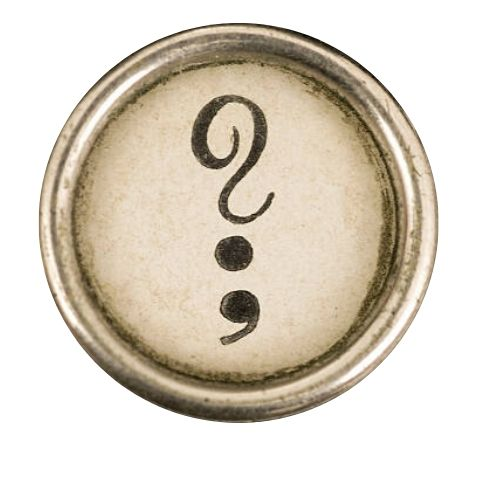Constantine P. Curran (1880–1975) was a friend of James Joyce’s at University College Dublin. He read the freshly written manuscript of Stephen Hero and later knew the émigré Joyce in Paris in the 1920s and 1930s. In 1968, Curran issued his memoir James Joyce Remembered with Oxford University Press.1 I recently had cause to revisit this volume, and I note here two findings.
In 1933, Joyce bought Curran a case of French red wine, claiming that it had connexions with Saint Patrick (a typical Joycean fixation on things Irish). In perhaps 1936 or 1937, Curran served the wine to his friend Osborn Bergin, who produced a Latin mock poem in tribute to the wine and gave it to Curran on a Rathmines bus. The Brother may not have been on board at the time, but the prose translation of Bergin’s poem that Curran offers the reader was produced by ‘my friend, Mr Niall Montgomery.’2 Montgomery has translated the lines
Qui tardos gressus cognovit Ulixis Ierni
(quid latet in tumido, Daedale, corde tuo?)
as: ‘he who knew of the late wanderings of the Irish Ulysses (Say, Daedalus, what lies hidden in your swelling heart?)’.
My first thought on reading this was that Montgomery had translated the verses at the time – in effect, between the eras of Blather and Cruiskeen Lawn. But on reflection, it is much more likely that Montgomery did this for Curran later in life, having come to know him through his work on Dublin architecture. In a footnote on page 108, Curran also thanks Montgomery for a quotation from W. B. Yeats.3 It seems feasible that Curran gave the manuscript to Montgomery, who made suggestions of this kind.
Perhaps more information on Montgomery’s role could be found in Christine O’Neill’s Montgomery volume Dublinman (2015),4 a book that is tricky to procure but was very informatively reviewed by Maebh Long in The Parish Review 4, no. 1 (2018).5 The episode shows that Montgomery not only styled himself as a Joycean, but cultivated at least one of Joyce’s oldest friends, maintaining a cross-generational link between, in effect, Joyce’s circle and Brian O’Nolan’s. Montgomery’s translation of a mock-epic poem invoking Joyce is also rather reminiscent of the Wakean fragment by O’Nolan, ‘Pisa Bec Oc Parnabus Extractum O Bhark I bPragrais’, translated in The Parish Review 4, no. 1 (Spring 2018) by Tobias Harris, John Wyse Jackson and Thomas O’Donnell.6
Curran further records that on Wednesday 2 February 1938, he spoke on a Radio Éireann radio broadcast marking James Joyce’s 56th birthday. He was in regular contact with Joyce at the time, and reports that the Joyce family and entourage (including Samuel Beckett) all tuned in, before going on to further birthday celebrations. Curran knows this because his daughter Elizabeth was in Paris at the time and attended the festivities, reporting on them at length in a letter. I confess that I had not known about this broadcast. Little record of it is immediately available. It ought to appear on page 707 of the 1982 edition of Richard Ellmann’s James Joyce but does not; the same goes for page 286 of James Knowlson’s life of Samuel Beckett (1996), page 296 of Magalaner and Kain’s Joyce: The Man, the Work, the Reputation (1957), and Herbert Gorman’s 1941 biography of Joyce. An initial search of histories of Irish broadcasting also turns up nothing on the broadcast, but more research on this would be worthwhile. What seems remarkable is that official Irish culture in this period in Ireland is widely portrayed as suspicious of Joyce. That the national broadcaster produced a birthday tribute to him does not fit this picture.
The reader may then wonder whether Brian O’Nolan and friends also heard the broadcast. In the absence of documentation (like letters) from the period, it must remain a merely speculative thought that James Joyce, Samuel Beckett, and ‘Flann O’Brien’ were all listening to the same radio programme at the same time. It seems rather likely, though, that Montgomery, the self-styled Joycean, would have tuned in, and that the programme could have influenced the ‘O’Nolan Circle’ that way. More broadly, the very fact of the broadcast – and what it implies about Joyce’s official acceptability – might bid us think again about the media and literary culture of Dublin at the time of At Swim-Two-Birds.
I would add that this anecdote reminds us of the role of radio in Irish society at this time: something that is not very often discussed in Flann O’Brien Studies. We know that radio adaptations of some of O’Nolan’s works (including Thirst and ‘John Duffy’s Brother’) later appeared; we also have the articles on the fictional station 2BL from Blather.7 Perhaps more remains to be said about how radio affected the imagination of this Irish generation.
Notes
- C. P. Curran James Joyce Remembered (Oxford: Oxford University Press, 1968). [^]
- Ibid., 99. [^]
- Ibid., 108, fn. 2. [^]
- Niall Montgomery: Dublinman, ed. Christine O’Neill (Dublin: Ashfield Press, 2015). [^]
- Maebh Long, ‘Review of Niall Montgomery: Dublinman (2015), edited by Christine O’Neill,’ The Parish Review: Journal of Flann O’Brien Studies 4, no. 1 (Spring 2018): 75–9. Available at: https://doi.org/10.16995/pr.3232. [^]
- Tobias Harris, John Wyse Jackson, and Thomas O’Donnell, ‘Translation: “Pisa Bec Oc Parnabus Extractum O Bhark I bPragrais le Briain O Nuallain” (1938),’ The Parish Review: Journal of Flann O’Brien Studies 4, no. 1 (Spring 2018): 71–74. Available at: https://doi.org/10.16995/pr.3231. [^]
- These can be found in Flann O’Brien, Myles Before Myles: A Selection of the Earlier Writings of Brian O’Nolan, ed. John Wyse Jackson (London: Grafton, 1988), 131–6. [^]
Competing Interests
The author has no competing interests to declare.
